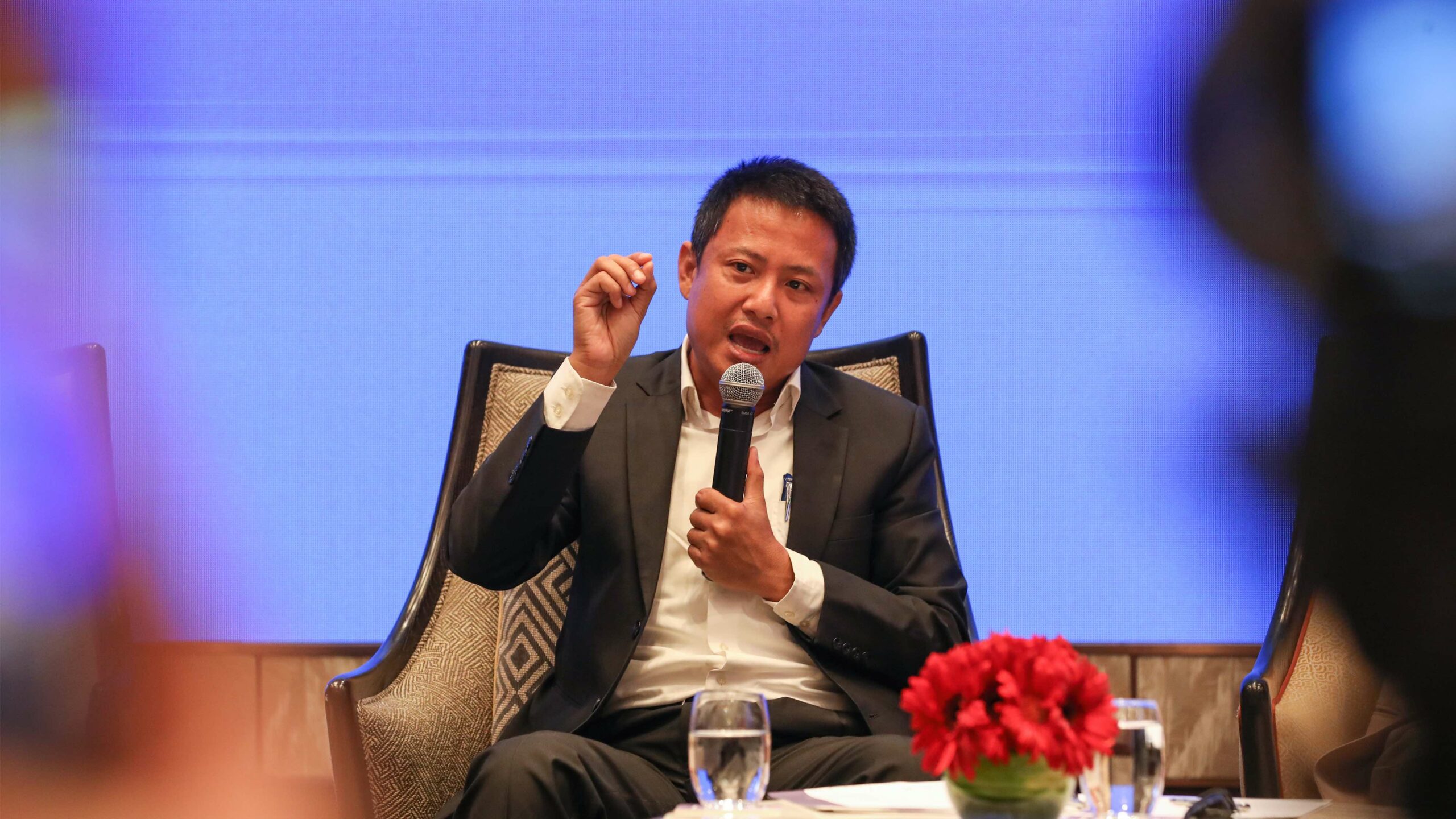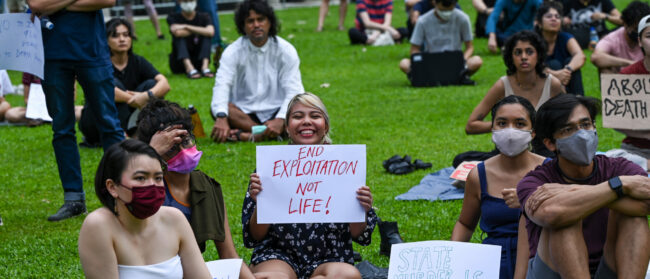Platitudes echoed in speeches at a UN-organised media event on 2 May, just before World Press Freedom Day in Phnom Penh.
Speakers stressed the role of independent news as a “pillar of democracy” in Cambodia and a “fundamental human right” worth defending. The praise bypassed an elephant in the room – the abrupt closure two months ago of the Voice of Democracy (VOD), a prominent daily outlet that specialised in government reporting.
The February crackdown was announced through a Facebook post from Prime Minister Hun Sen. The speed of it sent a chill through the remainder of the independent press, which in the lead up to the July national election has warned of a dissolving media space. But these more existential worries about press freedom found no room on the UN event’s agenda, which focused on promoting journalism training and women in media.
The closure was only questioned by Chak Sopheap, executive director of the Cambodian Center for Human Rights, on a panel about media developments in the Kingdom.

“I hope the prime minister will generously, compassionately reconsider reopening VOD,” Sopheap said. “If we are truly going to ensure press freedom, we must reconsider if VOD’s actions were wrongful.”
Meas Sophorn, a spokesperson for Cambodia’s Ministry of Information, calmly shook his head as the audience applauded Sopheap’s plea. In the eyes of the ministry, which often directly reflects the views of the prime minister, the closure of a single outlet does not “suffocate the overall press freedom”.
“Press freedom in Cambodia cannot use one unlawful newsroom as the definition of the press freedom space. The closure of the VOD did not slay press freedom in Cambodia,” Sophorn said. “On the other hand, that was a wake-up call for all newsrooms to be responsible for their professional conduct.”
Journalists in the room interpreted the response as a veiled warning. And when directly asked by Southeast Asia Globe about the likelihood of VOD’s reopening, Sophorn advised reporters to “just keep taking pretty photos of Cambodia.”
In the immediate wake of Hun Sen’s closure of VOD, representatives of surviving outlets were wary that the prime minister’s decision seemed to bypass articles of the Law on the Press.
“Until now people question the legality of the shutdown of VOD,” Sopheap said to Globe. “When it comes to these arbitrary decisions from the top leader, people just call for the reversal because debating the legality of the decision is not even helpful.”
When asked about concrete ways to defend the free press, Sopheap laughed with uncertainty.
“Press can not be free when places, like VOD, can be shut down very arbitrarily,” Sopheap said. “We can only hope that the call from many of us can touch the leader’s heart.”
The prime minister’s February order to close VOD followed a seemingly minor news story that quoted a government spokesman as saying it would be acceptable for Hun Sen’s eldest son, military commander Hun Manet, to sign off on an aid package to earthquake-stricken Turkey.
Despite Hun Sen’s denunciations of VOD’s alleged lack of professionalism during his closure order, he urged the outlet’s staff to apply for ministry jobs. Political observers saw this as a tactic to co-opt his perceived opposition. Within two weeks of the shutdown, 26 former employees were hired by various ministries.
The VOD shutdown fits the mould of previous cycles of press crackdowns ahead of national elections.
The year before the 2018 national elections, Hun Sen issued a several-million-dollar unpaid tax claim to the country’s oldest English-language newspaper, effectively closing The Cambodia Daily. The persecution of newspaper employees came in lock-step with further orders for Radio Free Asia and Voice of America to stop broadcasting in Cambodia.
A Reporters Without Borders release on World Press Freedom Day noted Cambodia as one of the countries in the Asia-Pacific region following the trend “where government persecution of independent media has intensified in the run-up to elections that are due to be held in the coming months.”
On Cambodia’s country page, the advocacy organisation praised the free press that flourished until “Hun Sen launched a ruthless war against independent journalism before the 2018 elections.”
While the outcome of the July election is seemingly all but certain in favour of the ruling Cambodian People’s Party, the vote is seen as a key moment for the transition of power from father to son. Hun Sen, who has led Cambodia for nearly 40 years, has declared his son as his chosen successor.

On World Press Freedom Day itself on 3 May, the embassies of the U.S. and France hosted an event that was somewhat more candid than the UN.
Hang Samphors, head of the advocacy group Cambodian Female Journalists, said the government’s impunity will “continue to scare journalists”. This would in turn be “limiting their possibilities, freedom and will to do the job. Making them feel more cautious, fearful for their own safety – inhibiting them from doing their work.”
With the backdrop of a memorial for journalists killed during Cambodia’s civil war, ambassadors from the U.S., France and Japan joined Samphors in sharing concerns over VOD’s shutdown and the state of the free press in the run-up to elections.
“We urge authorities to promote media freedom, ensure that journalists can do their jobs without fear of reprisal,” said U.S. Ambassador W. Patrick Murphy. “We also urge authorities to protect reporters from violence and harassment, not be the source of harassment.”


U.S. Ambassador to Cambodia Patrick Murphy speaks to journalists and diplomats at a World Press Freedom Day event on 3 May in Phnom Penh. Photos: Anton L. Delgado for Southeast Asia Globe.


